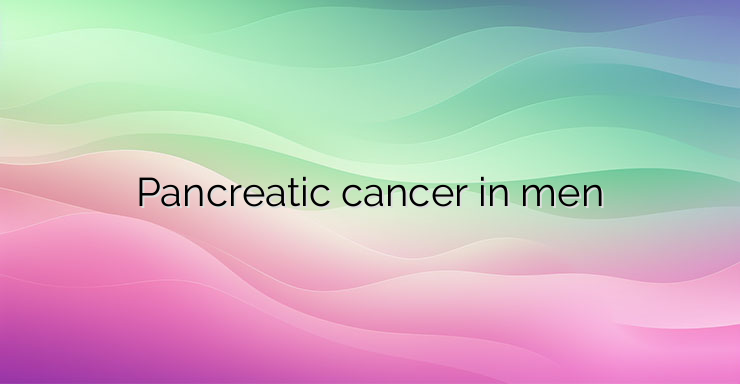What are the symptoms of pancreatic cancer in men? Pancreatic cancer is often difficult to detect. Studies show that this type of cancer does not tend to cause noticeable signs or symptoms when it is in the early stages. By the time symptoms develop, the cancer has often grown or spread outside the pancreas. Pancreatic cancer symptoms are similar in men and women. However, men are at a slightly increased risk of developing pancreatic cancer. A 2019 study found that 5.5 per 100,000 men and 4.0 per 100,000 women develop pancreatic cancer in the United States. When pancreatic cancer symptoms develop, they can be difficult to recognize. This is because they are often common and can have many potential causes. According to a 2022 scientific article, about 70% of patients have painless jaundice at the time of diagnosis. Jaundice is a yellowing of the skin and the sclera (whites) of the eyes. Unintentional weight loss occurs in about 90% of people with pancreatic cancer, and about 75% develop abdominal pain. Other symptoms may include: Itchy skin; Dark urine; Pale stools; Pain in the middle of the back; Loss of appetite; Digestive problems; Nausea or vomiting; Lethargy; Enlargement of the gallbladder or liver; Blood clots; Diabetes (occurs in about 25% of people according to a 2011 study) Are the symptoms of pancreatic cancer different in women versus men? Pancreatic cancer symptoms are the same in women and men. But there may be differences in how men and women respond to treatment. Some studies indicate that women tend to respond better to one of the main chemotherapy regimens for pancreatic cancer called FOLFIRINOX. However, the main drug used in the regimen, called fluorouracil, breaks down more slowly in women, which can have a toxic effect. A 2022 study found that in a group of 7,470 people with pancreatic cancer that had spread to distant organs, women had slightly better overall survival than men. Early diagnosis of pancreatic cancer is crucial for a better prognosis. Identifying and treating cancer in its early stages gives a much better chance of survival. References: 1. National Center for Biotechnology Information. Huang BZ, et al. (2019). Interethnic differences in pancreatic cancer incidence and risk factors: The multiethnic cohort 2. American Cancer Society. Pancreatic cancer risk factors. (2020) 3. Healthline. What Are the Symptoms of Pancreatic Cancer in Men?


Leave a Reply